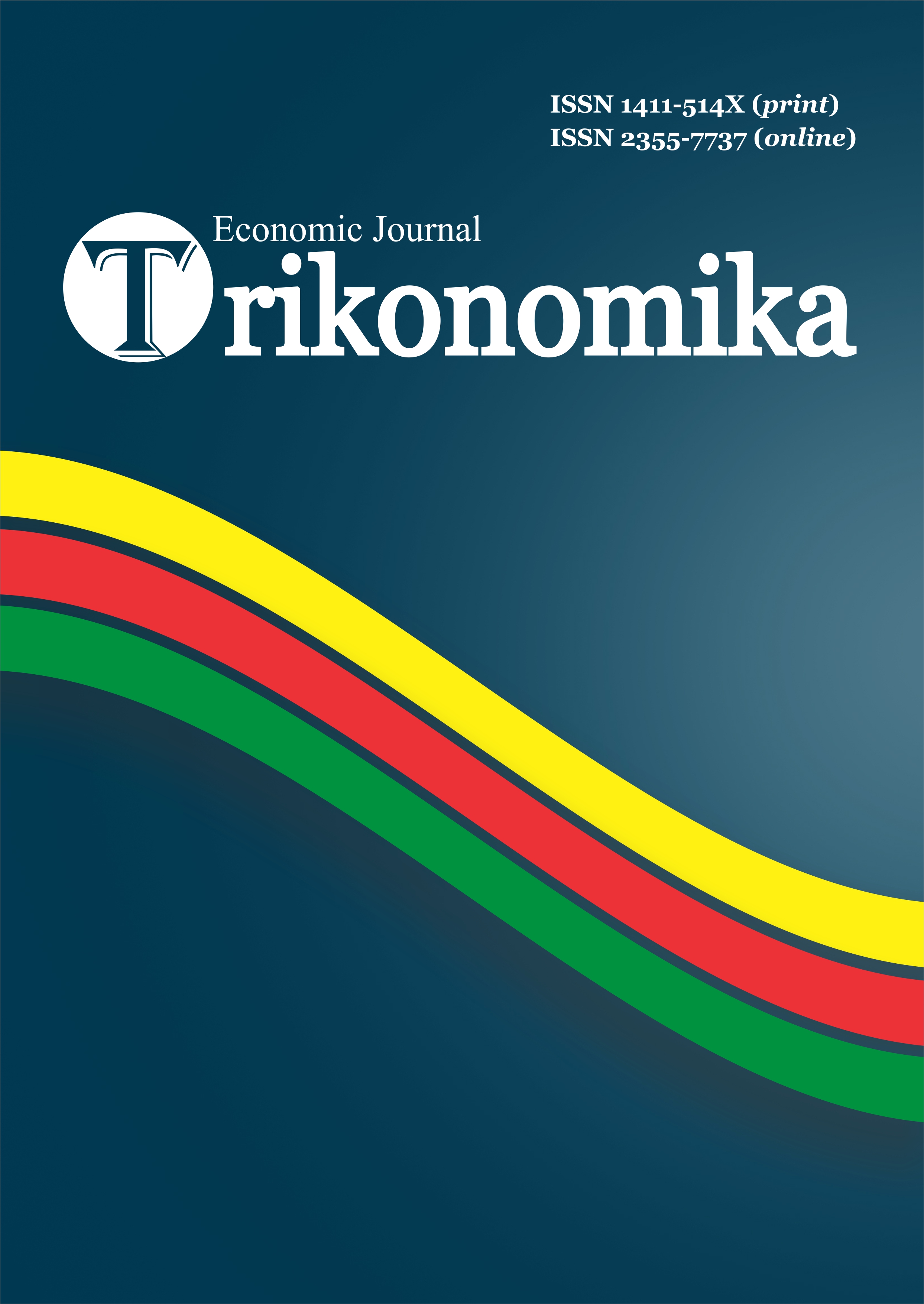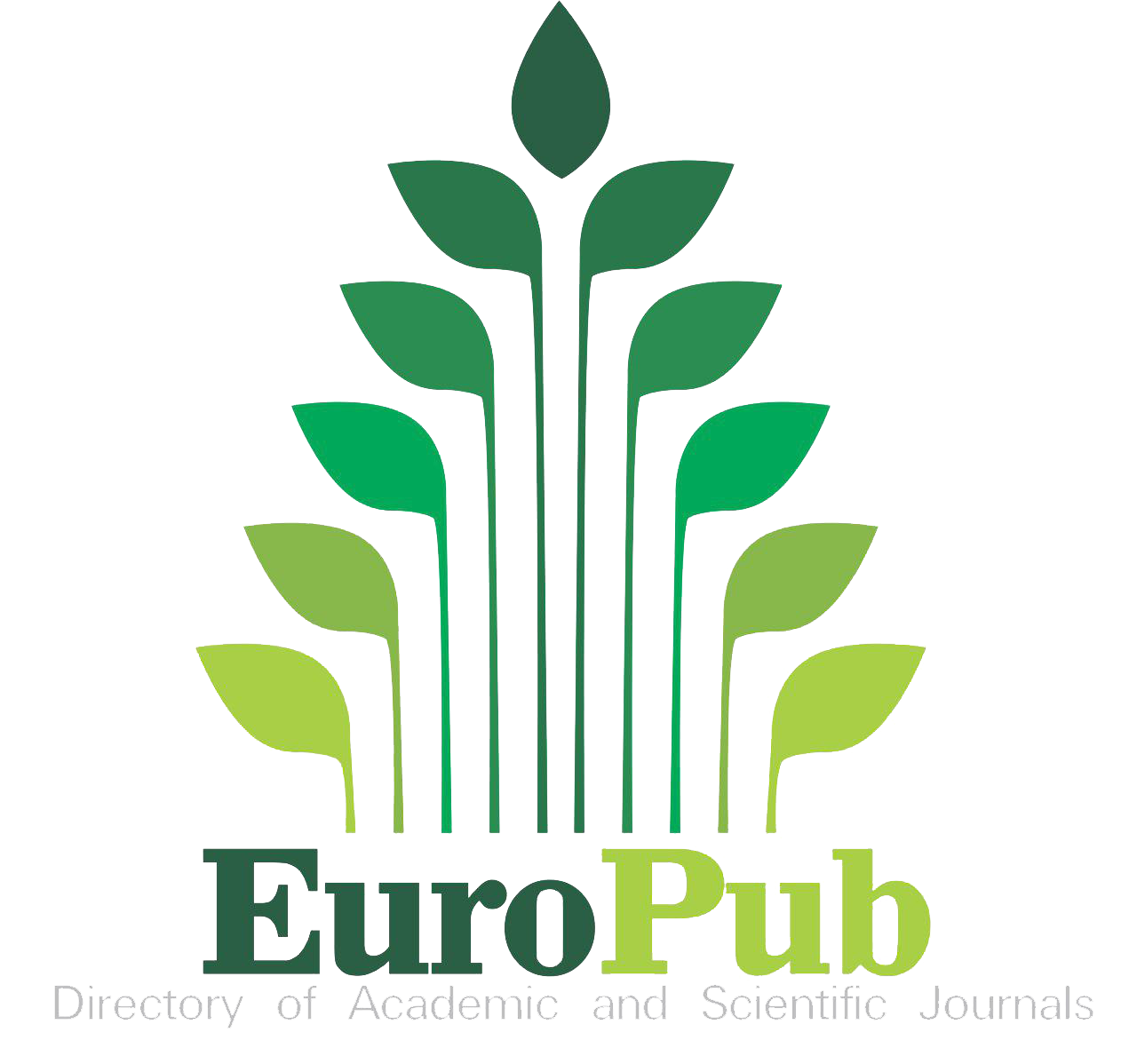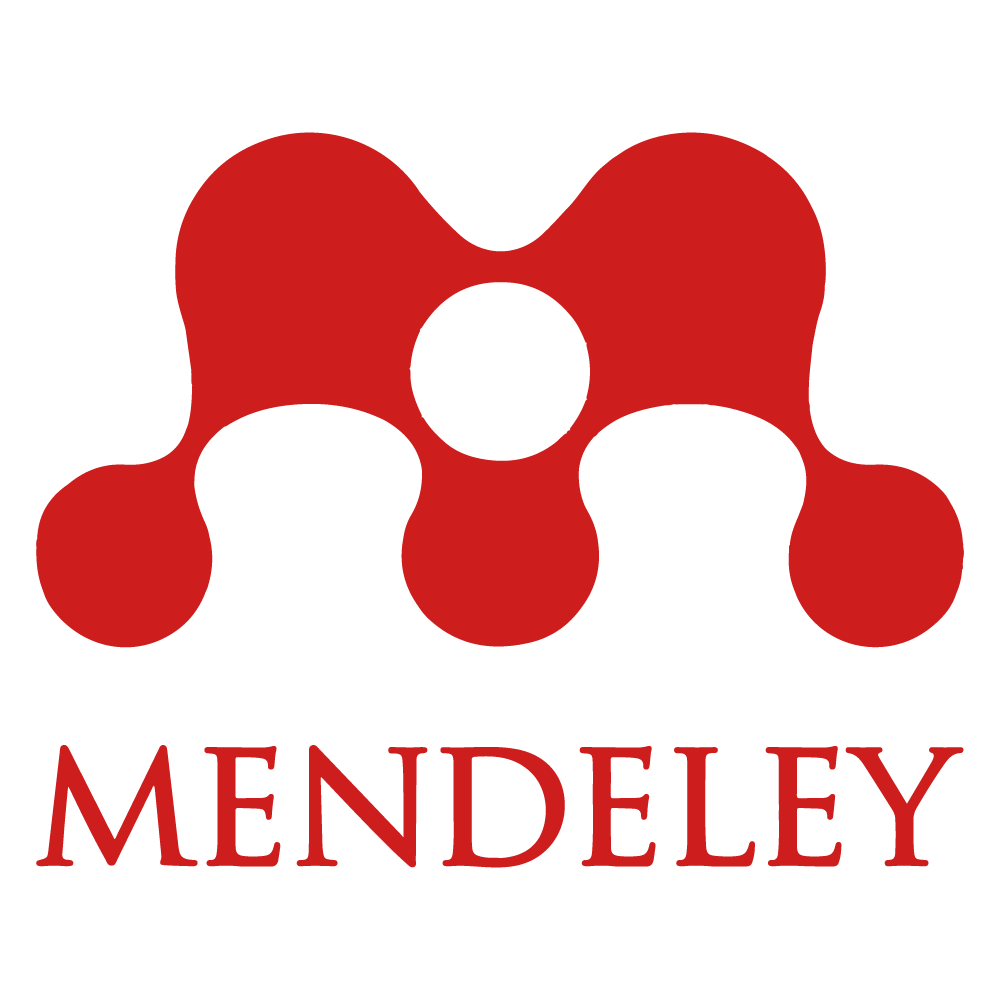SHARIA HOSPITAL BUSINESS DEVELOPMENT STRATEGY FOR ISLAMIC HIGHER EDUCATION IN INDONESIA
DOI:
https://doi.org/10.23969/trikonomika.v23i1.12922Keywords:
Sharia Hospital, Regulations, Capital, Literacy, Human ResourcesAbstract
This research aims to identify the sharia hospital business development strategy for Islamic Religious Universities in Indonesia (PTKI). This study employs both qualitative and quantitative methods that was conducted at ten sharia hospitals by interviews with experts, sharia hospital practitioners, and sharia hospital regulators. The Analytical Network Process (ANP) method was used to analyze the interview results. The research results stated that the Sharia hospital has great potential to be developed for PTKI in Indonesia because the market potential was wide open and there were still few Sharia hospitals standing, so PTKI must play a role by creating human resources capable of managing a Sharia hospital. Research results should the priority problems in developing the Sharia hospital business within the PTKI environment in Indonesia were regulatory, then capital, human resources, and finally literacy issues. The priorities for the Sharia hospital business development strategy within PTKI in Indonesia were government support, then regulations, strengthening capital, quality, and quantity of human resources, and finally increasing literacy.
Downloads
References
Ababneh, H. T., & Avramenko, A. (2016). Impact of Islamic values on HRM practices: an empirical study of Jordanian universities. International Journal of Business Excellence, 10(1), 1. https://doi.org/10.1504/IJBEX.2016.077625
Abdul Ghani Azmi, I. (2015). Islamic human resource practices and organizational performance. Journal of Islamic Accounting and Business Research, 6(1), 2–18. https://doi.org/10.1108/JIABR-02-2012-0010
Abdullah, M. (2020). Reflection of Maqāṣid al-Sharī’ah in the classical Fiqh al - Awqāf. Islamic Economic Studies, 27(2), 79–90. https://doi.org/10.1108/IES-06-2019-0011
Abdurrokhman, M., & Sulistiadi, W. (2019). Sharia Hospital As an Added Value: A Systematic Review. Strengthening Hospital Competitiveness to Improve Patient Satisfaction and Better Health Outcomes, 294–294. https://doi.org/10.26911/the6thicph.04.56
Aisyah Ismail, S., Hamid, B., Sulistiadi, W., & . S. (2018). Journey to Shariah Hospital: An Indonesian Experience. KnE Life Sciences, 4(9), 315. https://doi.org/10.18502/kls.v4i9.3582
Alarimy, A. S. J. (2015). Islamic and Western Approaches To Human Resource Management in Organizations : a Practical Approach . International Journal of Information Technology and Business Management, 39(1), 1–13.
Alfarizi, M., & Arifian, R. (2023). Patient satisfaction with Indonesian sharia hospital services: Halal healthcare tool and implications for loyalty-WoM. Asian Journal of Islamic Management (AJIM), 5(1), 18–35. https://doi.org/10.20885/AJIM.vol5.iss1.art2
Almas, F. (2022). Realizing SDGs in Indonesia Through Productive Waqf. Jurnal of Middle East and Islamic Studies, 9(2). https://doi.org/10.7454/meis.v9i2.148
Aman, A. (2019). Islamic marketing ethics for Islamic financial institutions. International Journal of Ethics and Systems, 36(1), 1–11. https://doi.org/10.1108/IJOES-12-2018-0182
Antara, P. M., Musa, R., & Hassan, F. (2016). Bridging Islamic Financial Literacy and Halal Literacy: The Way Forward in Halal Ecosystem. Procedia Economics and Finance, 37(16), 196–202. https://doi.org/10.1016/S2212-5671(16)30113-7
Ascarya, & Tanjung, H. (2021). Structures of HealthcareWaqf in Indonesia to Support SDGs. In M. M. Billah (Ed.), Islamic Wealth and the SDGs: Global Strategies for Socio-Economic Impact (pp. 305–324). Palgrave Macmillan UK. https://doi.org/10.1007/978-3-030-65313-2
Chen, Y., Jin, Q., Fang, H., Lei, H., Hu, J., Wu, Y., Chen, J., Wang, C., & Wan, Y. (2019). Analytic network process: Academic insights and perspectives analysis. Journal of Cleaner Production, 235, 1276–1294. https://doi.org/10.1016/j.jclepro.2019.07.016
Çizakça, M. (2015). Islamıc Wealth Management in History and at Present. Journal of King Abdulaziz University-Islamic Economics, 28(1), 3–19. https://doi.org/10.4197 / Islec. 28-1.1 Islamıc
Ezat, S., Puteh, W., Aizuddin, A. N., Abdullah, A., & Salem, A. (2023). Is National Health Insurance Feasible for Saudi Healthcare Services? A Qualitative Study. International Journal of Finance, Insurance and Risk Management, XIII(1), 3–26. https://journalfirm.com/journal/341/download/Is+National+Health+Insurance+Feasible+for+Saudi+Healthcare+Services%3F+A+Qualitative+Study.pdf
Françozo, R. V., Junior, L. S. V. U., Carrapateira, E. S., Pacheco, B. C. S., Oliveira, M. T., Torsoni, G. B., & Yari, J. (2023). A web-based software for group decision with analytic hierarchy process. MethodsX, 11(June), 102277. https://doi.org/10.1016/j.mex.2023.102277
Gadelrab, H. F., Alkhadher, O., Aldhafri, S., Almoshawah, S., Khatatba, Y., El Abiddine, F. Z., Alyetama, M., Elmsalak, S., Tarboush, N., & Slimene, S. (2020). Organizational Justice in Arab Countries: Investigation of the Measurement and Structural Invariance. Cross-Cultural Research, 54(1), 3–27. https://doi.org/10.1177/1069397118815099
Harun, S., & Senawi, A. R. (2023). The Determinants of Customer Satisfaction towards Muslim-Friendly Healthcare Service Deliveries: A Conceptual Model. Information Management and Business Review, 15(4 (SI) I), 326–330.
Hashim, J. (2009). Islamic revival in human resource management practices among selected Islamic organisations in Malaysia. International Journal of Islamic and Middle Eastern Finance and Management, 2(3), 251–267. https://doi.org/10.1108/17538390910986362
Hisham, Y., & Hairul Suhaimi, N. (2017). Investigating Awqaf Management, Accounting and Investment Practices in Malaysia: The Case of a State Religious Institution. Global Journal Al Thaqafah, 7(1), 59–70. https://doi.org/10.7187/GJAT12720170701
Islam, S., Muhamad, N., & Leong, V. S. (2023). Healthcare quality for Muslims: TCCM and TSR frameworks analyses. Journal of Islamic Marketing, 14(3), 775–798.
Jamaludin, F. I. C., Abdullah, M. R. T. L., & Endut, M. N. A.-A. (2023). Establishing a Sustainable Shariah-Compliant Hospital in Malaysia: Exploring the Pertinent Concept. KnE Social Sciences, 670–685.
Kheybari, S., Rezaie, F. M., & Farazmand, H. (2020). Analytic network process: An overview of applications. Applied Mathematics and Computation, 367, 124780. https://doi.org/10.1016/j.amc.2019.124780
Maharani, V. M., Jati, S. P., & Nugraheni, S. A. (2021). Overview of Patient Satisfaction to Sharia Services Hospitals in Indonesia: Literature Review. Jurnal Aisyah : Jurnal Ilmu Kesehatan, 6(3), 681–686. https://doi.org/10.30604/jika.v6i3.1008
Mahendra, Z. F., & Surwandono, S. (2021). The Strategy of Taiwan Government to Build Muslim Friendly Environment. Politea, 4(2), 208. https://doi.org/10.21043/politea.v4i2.12467
Mardiyati, F. Y., & Ayuningtyas, D. (2021). Analysis of Implementation Standards of Sharia Minimum Services in the Hospital: Case Study at Sari Asih Sangiang Hospital 2018. Journal of Indonesian Health Policy and Administration, 6(1), 127–133. https://doi.org/10.7454/ihpa.v6i1.3145
Mohammadi, A., Vanaki, Z., Memarian, R., & Fallahrafie, R. A. (2019). Islamic and Western Ethical Values in Health Services Management: A Comparative Study. International Journal of Nursing Knowledge, 30(4), 239–250. https://doi.org/10.1111/2047-3095.12244
Mubarok, F. K., & Imam, M. K. (2020). Halal Industry in Indonesia; Challenges and Opportunities. Journal of Digital Marketing and Halal Industry, 2(1), 55. https://doi.org/10.21580/jdmhi.2020.2.1.5856
Nadratuzzaman, M., Taufiki, M., & Yumna, L. (2021). MANAGEMENT EVALUATION AND SHARIA CERTIFIED HOSPITALS COMPLIANCE: Case Study of Sari Asih Ciledug Hospital, Indonesia. Al Qalam, 38(1), 73–96.
Naserirad, M., Tavakol, M., Abbasi, M., Jannat, B., Sadeghi, N., & Bahemmat, Z. (2023). Predictors of international Muslim medical tourists’ expectations on halal-friendly healthcare services: A hospital-based study. Health Services Management Research, 36(4), 230–239.
Ningtyas, P. F., Permana, I., Rosa, E. M., & Jaswir, I. (2022). Halal Medicine Selection Process in Sharia-Certified Hospital. Indonesian Journal of Halal Research, 4(2), 85–96. https://doi.org/10.15575/ijhar.v4i2.16722
Putra Boediman, E. (2017). Halal Lifestyle in Marketing Communication of Tourism and Hospitality. International Journal of Economic Research, 14(4).
Rahayu, S., Paramitha, P., Koloi, V. S., Lesmana, L., & Sulistiadi, W. (2023). The Impact of Sharia Certification on Nutrition Management at YARSI Hospital. JMMR (Jurnal Medicoeticolegal Dan Manajemen Rumah Sakit), 12(2), 216–232.
Rahman, M. K., Bhuiyan, M. A., & Zailani, S. (2021). Healthcare services: patient satisfaction and loyalty lessons from islamic friendly hospitals. Patient Preference and Adherence, 2633–2646.
Rahman, M. K., Zainol, N. R., Nawi, N. C., Patwary, A. K., Zulkifli, W. F. W., & Haque, M. M. (2023). Halal Healthcare Services: Patients’ Satisfaction and Word of Mouth Lesson from Islamic-Friendly Hospitals. Sustainability, 15(2), 1493.
Rana, M. H., & Malik, M. S. (2017). Impact of human resource (HR) practices on organizational performance. International Journal of Islamic and Middle Eastern Finance and Management, 10(2), 186–207. https://doi.org/10.1108/IMEFM-04-2016-0060
Rizqon, M. S., Sulisno, M., & Suryawati, C. (2020). Sharia Services With A Level Of Patient Satisfaction In Hospitals: Literature Review. Jurnal Keperawatan Respati Yogyakarta, 7(1), 27. https://doi.org/10.35842/jkry.v7i1.529
Saaty, T. L. (1994). How to Make a Decision: The Analytic Hierarchy Process. Interfaces, 24(6), 19–43. https://doi.org/10.1287/inte.24.6.19
Salehudin, I. (2013). Halal Literacy: A Concept Exploration and Measurement Validation. ASEAN Marketing Journal, 2(1). https://doi.org/10.21002/amj.v2i1.1987
Sukmana, R. (2020). Critical assessment of Islamic endowment funds (Waqf) literature: lesson for government and future directions. Heliyon, 6(10), e05074. https://doi.org/10.1016/j.heliyon.2020.e05074
Sulistyowati, Sukmana, R., Ratnasari, R. T., Ascarya, & Widiastuti, T. (2022). Issues and challenges of waqf in providing healthcare resources. Islamic Economic Studies, 30(1), 2–22. https://doi.org/10.1108/IES-09-2021-0034
Tlaiss, H. A. (2015). How Islamic Business Ethics Impact Women Entrepreneurs: Insights from Four Arab Middle Eastern Countries. Journal of Business Ethics, 129(4), 859–877. https://doi.org/10.1007/s10551-014-2138-3
Toumi, S., & Su, Z. (2023). Islamic values and human resources management: A qualitative study of grocery stores in the Quebec province. International Journal of Cross Cultural Management, 23(1), 79–112. https://doi.org/10.1177/14705958221136691
Wardhani, V., van Dijk, J. P., & Utarini, A. (2019). Hospitals accreditation status in Indonesia: associated with hospital characteristics, market competition intensity, and hospital performance? BMC Health Services Research, 19(1), 372. https://doi.org/10.1186/s12913-019-4187-x
Wilson, R. (2006). Islam and business. Thunderbird International Business Review, 48(1), 109–123. https://doi.org/10.1002/tie.20088
Windasari, N. A., Azhari, N. P. D. A., & Putra, I. F. (2023). Assessing consumer preferences on halal service: the emergence of Sharia hospitals for Muslim consumer. Journal of Islamic Marketing.
Zailani, S., Ali, S. M., Iranmanesh, M., Moghavvemi, S., & Musa, G. (2016). Predicting Muslim medical tourists’ satisfaction with Malaysian Islamic friendly hospitals. Tourism Management, 57, 159–167. https://doi.org/10.1016/j.tourman.2016.05.009
Zawawi, M., & Othman, K. (2018). An Overview of Shari’ah Compliant Healthcare Services in Mlayasia. Malaysian Journal of Consumer And Family Economics, 91–100.











